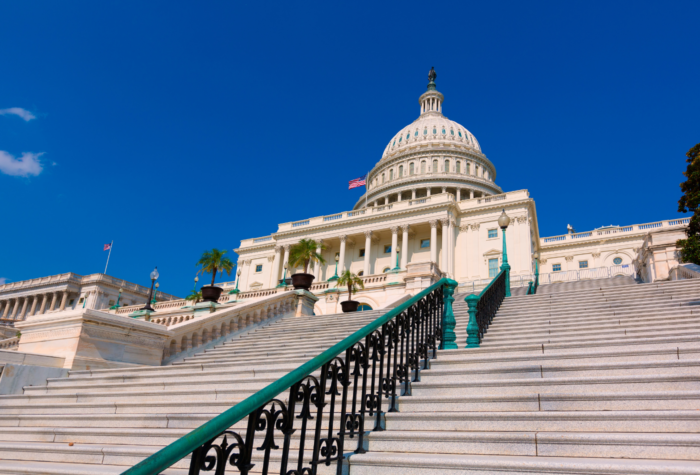The White-Riley-Peterson Policy (WRP) Fellowship creates opportunities for a nationwide network of leaders to harness their collective expertise to expand and improve afterschool and summer learning programming. Stephanie Barker, Coordinator for the Kentucky Out-of-School Alliance (KYOSA), has been named one of nineteen 2022-23 WRP Fellows, where she will focus on possible strategies for expanding access to afterschool and summer learning programs for subsidy-eligible school-age youth.
GREENVILLE, S.C.— Seeing high demand but facing staffing shortages and increased expenses, afterschool programs find themselves in a challenging moment, but the White-Riley-Peterson (WRP) Policy Fellowship is equipping 19 afterschool leaders from across the country with policy knowledge and tools to expand programs and establish funding streams.
Offered by the Riley Institute at Furman University and funded by the Charles Stewart Mott Foundation, the WRP Fellowship is in its eleventh year and has graduated 156 leaders from all 50 states. The newest class of WRP Fellows will participate in a hybrid program combining virtual and in-person classes for the span of 10 months. During that time, they’ll gain a real-world understanding of the art and science of sound policy-making for afterschool and expanded learning.
Former U.S. Secretary of Education Richard W. Riley, for whom the Riley Institute is named, said the role of afterschool and summer learning policy advocates is more important than ever.
“Afterschool and summer learning programs play an essential role in the education and well-being of our children, and they are especially important in the learning recovery efforts necessitated by the pandemic,” Riley said. “These creative leaders will ensure that access to quality afterschool programming remains a key ingredient in guaranteeing the educational success of our children now and for years to come.”
Despite labor shortages and rising costs brought on by the pandemic, afterschool and summer learning programs have the collective opportunity to leverage up to $30 billion in American Rescue Plan funding between 2021 and 2024. This is a significant increase from the $1.28 billion awarded annually by the 21st Century Community Learning Centers funding stream, the only federal line item dedicated exclusively to supporting out-of-school time programs.
Over the course of a year, WRP Fellows study an intensive policy curriculum, learn from policy experts, and benefit from national networking opportunities made possible by the Afterschool Alliance, a national advocacy organization, as well as the 50 State Afterschool Network supported by the Mott Foundation. By putting new policy skills to use, WRP Fellows develop and implement afterschool-related policy projects in their home states that ultimately support expanded learning opportunities for children across the country.
Projects completed by WRP Fellows have calculated the return on investment of afterschool funding, mapped afterschool programs across states, improved afterschool quality standards, and forged partnerships with state departments of education working to address learning loss related to COVID-19.
“Never before has the afterschool field had such an important seat at the table,” said Cathy Stevens, director of the White-Riley-Peterson Policy Fellowship. “Providing additional supports beyond the school day that address pandemic-related learning loss and associated mental health challenges, afterschool programs ensure that all students have the opportunities they need to have a bright future.”
The 2022-23 White-Riley-Peterson Policy Fellows are:
- Jenna Andrews (Kingsley, Iowa) Program Director, Beyond the Bell
- Justin Artenant (Newark, New Jersey) Senior Manager, United Way of Greater Newark
- Stephanie Barker (Richmond, Kentucky) Coordinator, Kentucky Out-of-School Alliance
- Sonja Beasley-Hall (Detroit, Michigan) Network Engagement Manager, Michigan Afterschool Partnership
- Cody Buchanan (Denver, Colorado) OST Programs and Partnership Specialist, Colorado Department of Education
- Annette Dawson Owens (Henderson, Nevada) School Readiness Policy Director, Children’s Advocacy Alliance
- Jed Dews (Athens, Georgia) Associate Director, Georgia Statewide Afterschool Network
- Loren Farmer (Charleston, West Virginia) Program Coordinator, West Virginia Statewide Afterschool Network
- Desmond Keller (Rapid City, South Dakota) Program Director, 21st Century Discovery / Black Hills Special Service
- Miriam Krause (Camp Hill, Pennsylvania) OST Professional Learning and Instruction Coordinator, Pennsylvania Statewide Afterschool Youth Development Network
- Leslye Lugo (San Francisco, California) Program Specialist, California Afterschool Network
- Chloe Anne McElligott (Boston, Massachusetts) Director of Outreach and Engagement, Massachusetts Afterschool Partnership
- Lili Murphy (Tallahassee, Florida) Executive Director, Florida Afterschool Network
- Jennifer Patronas (Eagle River, Alaska) CEO, Boys & Girls Clubs – Alaska
- Michele Ritchlin (Columbus, Ohio) Executive Director, Ohio Afterschool Network
- Kelly Schultz (Jefferson City, Missouri) Director of Policy and Partnerships, Missouri State Alliance of YMCAs
- Gabby Schwartz (Troy, New York) Policy Coordinator, New York State Network for Youth Success
- Samecia Stokes (Jackson, Mississippi) Executive Director, Office of Innovative Strategy, Jackson Public School District
- Tracye Strichik (Prattville, Alabama) Director of Professional Development and Regional Hubs, Alabama Expanded Learning Alliance
The White-Riley-Peterson Policy Fellowship is named for Secretary Riley; William S. White, the late chairman of the board of trustees of the Charles Stewart Mott Foundation; and Terry Peterson, national board chair of the Afterschool Alliance and senior fellow at the Riley Institute and the College of Charleston.
About the Riley Institute at Furman University
Furman University’s Richard W. Riley Institute advances social and economic progress in South Carolina and beyond by building leadership for a diverse society, hosting expert speakers to broaden perspectives on critical issues, supporting public education, and creating knowledge through community solutions-focused research. It is committed to nonpartisanship in all it does and to a rhetoric-free, facts-based approach to change. Learn more at furman.edu/riley.
About the Charles Stewart Mott Foundation
The Charles Stewart Mott Foundation, established in 1926 in Flint, Michigan, by an automotive pioneer, is a private philanthropy committed to supporting projects that promote a just, equitable and sustainable society. It supports nonprofit programs throughout the United States and, on a limited basis, internationally. Grantmaking is focused in four programs: Civil Society, Education, Environment and Flint Area. In addition to Flint, offices are located in metropolitan Detroit, Johannesburg and London. In 2020, the Foundation made 413 grants totaling more than $133 million and had year-end assets of approximately $3.6 billion. For more information, visit www.mott.org.

